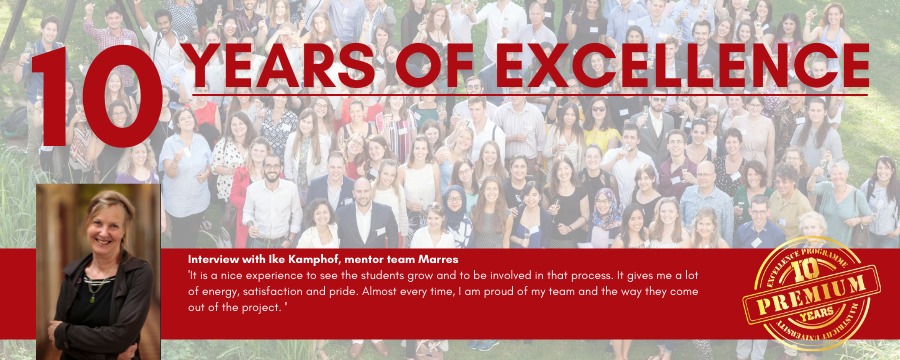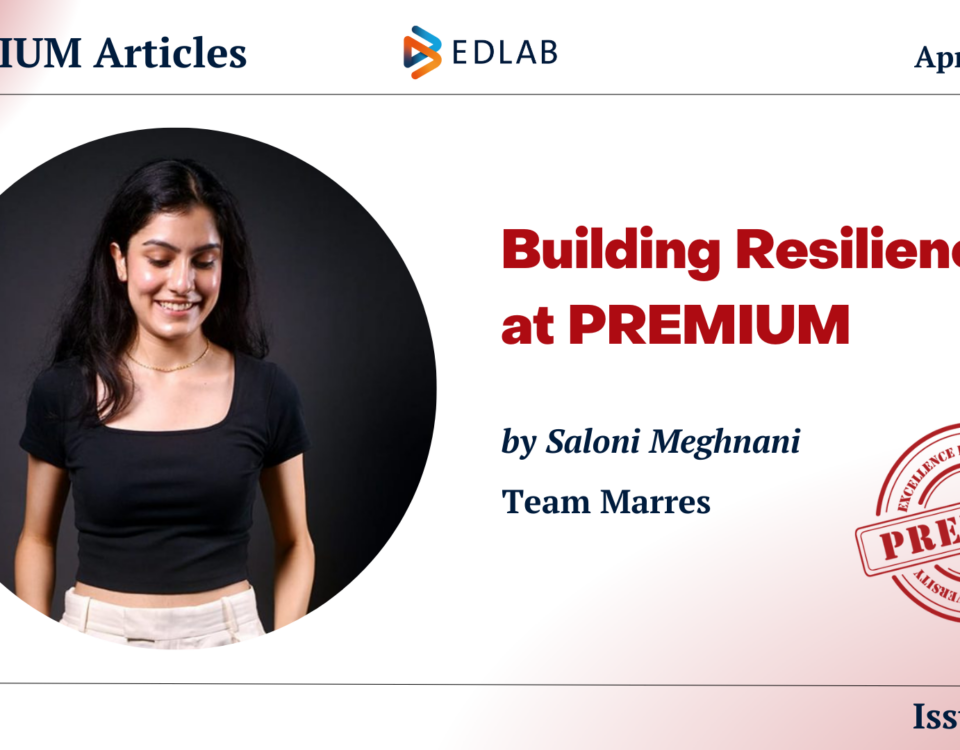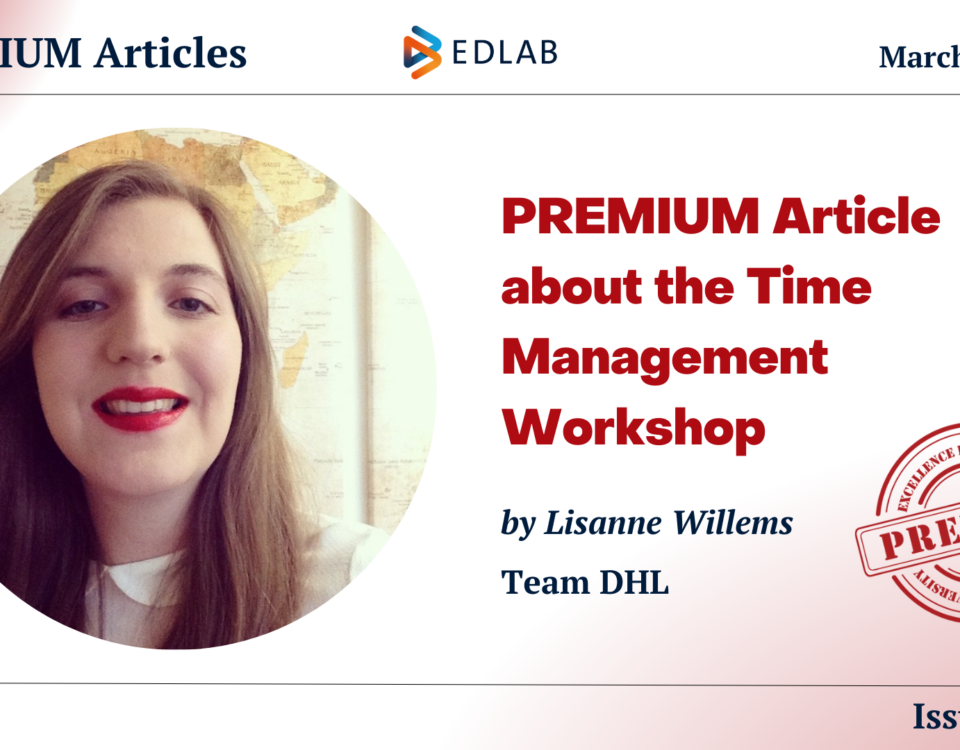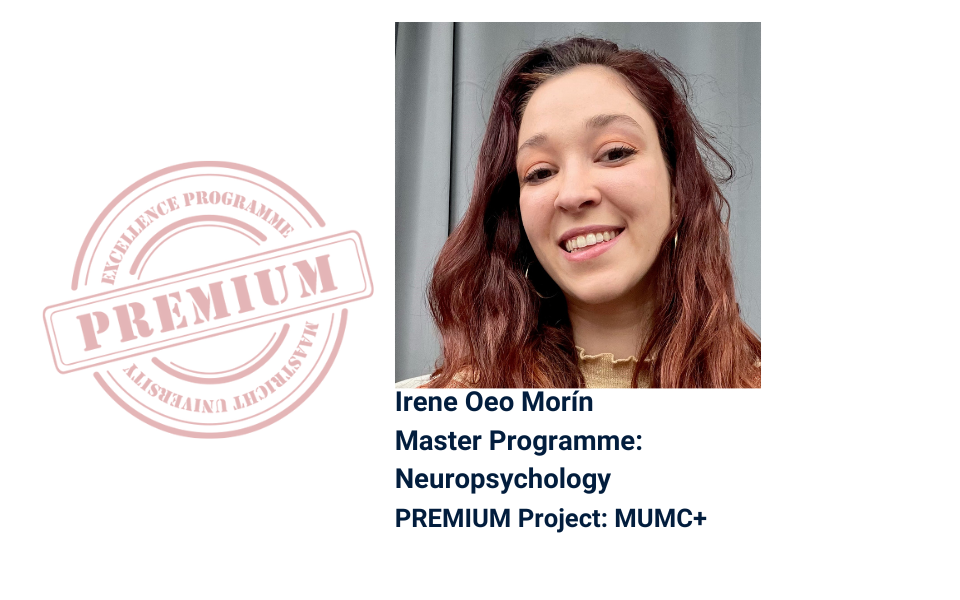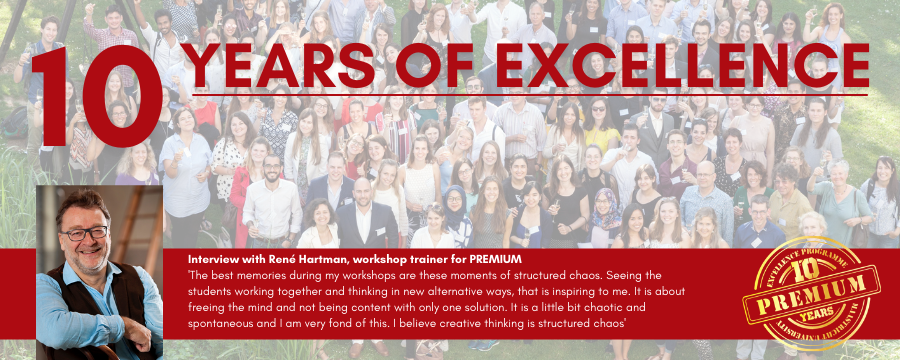
10 Years of PREMIUM – A decade of Excellence
11-05-2021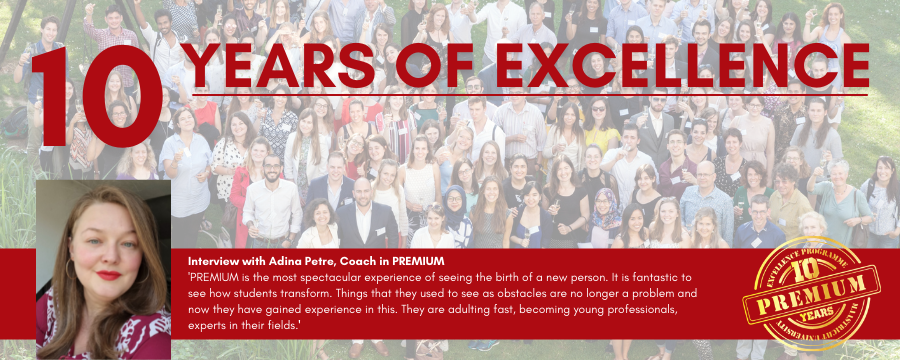
10 Years of PREMIUM – A decade of Excellence
21-06-2021In honor of 10 years of PREMIUM, we look back on what a decade of PREMIUM has meant for our alumni, coaches, mentors, clients, and trainers.
Another important component for the PREMIUM programme to be successful, are the dedicated mentors who put themselves out there to support the team dynamics and the process. This year, we are supported by around 20 mentors. And then there are also the enthusiasts who (lucky for us) come back every year as a mentor. Amongst them is Ike Kamphof, assistant professor at FASoS.
Ike is particularly interested in the senses. Therefore, it comes as no surprise that she has successfully mentored teams for the Marres project quite a few times already. Next to her role as mentor, she is also the FASoS coordinator for PREMIUM and helps in setting up, further developing, and evaluating the programme. Interested to know more about the role of Ike in the PREMIUM programme? Let’s look back on 10 years of Excellence together with Ike and hear about her experiences!
What does a successful PREMIUM project team look like for you?
‘I am not sure about that, since success is not always the most important thing. Of course, students want to deliver something valuable to their client. However, even if the project fails it may still be a successful experience for the student. PREMIUM is a safe learning experience for students.
If you ask me though what an ideal project team looks like, I would say the team ideally has to be interdisciplinary. This is an important aspect of PREMIUM. In the past, I have been a mentor to teams of students that were almost all of the same faculty. That is more difficult to work with. Especially when measuring success in terms of the learning experience for the students and to the final deliverable for the client. ‘
‘It is partly the success of the team, if they can find something valuable to offer to the client, in response to a problem that the client has. This may not always be what the client initially had envisioned, but what derives from what the team can analyse.
In the Marres project, the client is quite free and open in expectations – they are interested in the students’ experiences of explorations. Therefore, the Marres project is unique in a way that it is very open in the context of the assignment, though challenging and demanding in the sense that it has to be based on the students’ sensory behavior, genuine exploration and real discoveries. Students have to be willing to step out of their comfort zone and should not be afraid to be challenged and to open up.’
In what way has PREMIUM developed itself over the past few years?
‘As FASoS Coordinator, I have been involved in the development of the programme. Throughout the years, we have gained a much firmer grip on interesting and valuable projects for students. We have been able to develop more interesting challenges and at the same time, we became more aware of (possible) pitfalls in projects. Pitfalls such as; is the project doable within the given time, is the client too demanding or overly vague? We learned how to fine-tune project’s assignments in a way that projects will work most of the time. This is a good development that I have seen over the years.
The same goes for the workshops; in the beginning, we received feedback sometimes that a workshop was not that relevant to students. Now, we do not receive these complaints anymore.
Also, we always emphasize that PREMIUM does remain a learning experience, we know better how to communicate this to clients. ‘
What makes the mentoring of a PREMIUM project team unique?
‘I enjoy seeing the students grow to young professionals. This is one of the major components PREMIUM has to offer: a safe environment where we provide students with the experience of applying their knowledge to a client’s real-life problem. We also do this in PBL at Maastricht University, but that still remains abstract.
It is also a safe environment for students to get to know themselves better, in relationship to other people, whether this is the client or the team. A large part of studying is individually orientated; you have to choose your curriculum, you are working individually towards your career, you are assessed on an individual basis – a lot of university practices are quite individualistic. This is not how the real world works though – in the real world you have to work in teams, you have to solve problems together and you have to relate your expertise to that. In PREMIUM, they start to incorporate all of this already. Students learn who they are, in relationship to other people and the world. They grow immensely. ‘
In what way has the pandemic and working from home situation influenced your role as mentor for the PREMIUM team?
‘I notice that my team, and I heard this of other teams too, puts forward a lot of enthusiasm and positive energy. As if the pandemic calls up this extra motivation and energy to make things work well. Students are already in a situation that has a lot of negativities, so they want to keep the environment very positive. They support each other and work together very well.’
‘As a mentor, I am not active in organizing them at the start, they have to organize themselves. I may suggest some things or give back reflections or notes and give this back to the team and open a conversation. This is more difficult in Covid-19 times because you do not see them personally or do not see the body language. Therefore, I am trying to feel from other clues how the teamwork is going.’
Why would you advise others (e.g. UM colleagues) to become a mentor in the PREMIUM programme?
‘It is a nice experience to see the students grow and to be involved in that process. It gives me a lot of energy, satisfaction and pride. Almost every time, I am proud of my team and the way they come out of the project.
I also like this particular kind of mentoring students; you help them reflect on their strengths and weaknesses, and their perspectives. You learn the play of letting the students independently bang their heads against the brick wall, and then you help them reflect. I like developing those reflective skills a lot. Your role looks really small and from the sidelines, but it is quite important.’
What is your best PREMIUM memory so far?
‘I always like the Mix & Match, Kick-Off event because of the intensity of that event; students and clients come there with hopes and expectations and the networking is always quite intense.
There was this one time when the client Marres was stuck in traffic and was not in time for the presentation of the project, so I had to step in. Usually, I like to over-prepare for these kinds of things, but in this case, I couldn’t really.
I told the audience in my speech what it means to be sensory present. That we were all in that room together, and that we know and sense a lot more about each other than we sometimes articulate. I was talking about the sensory connection that we have to the world.
Then, I see this one student, a Law student, listening to me and sort of changing. Later, he came to talk to me and said that he wanted to be on the project. He changed his initial project preference completely, based on my speech. He wanted to be challenged, step out of his comfort zone and experience what I was talking about. That was so touching.’

